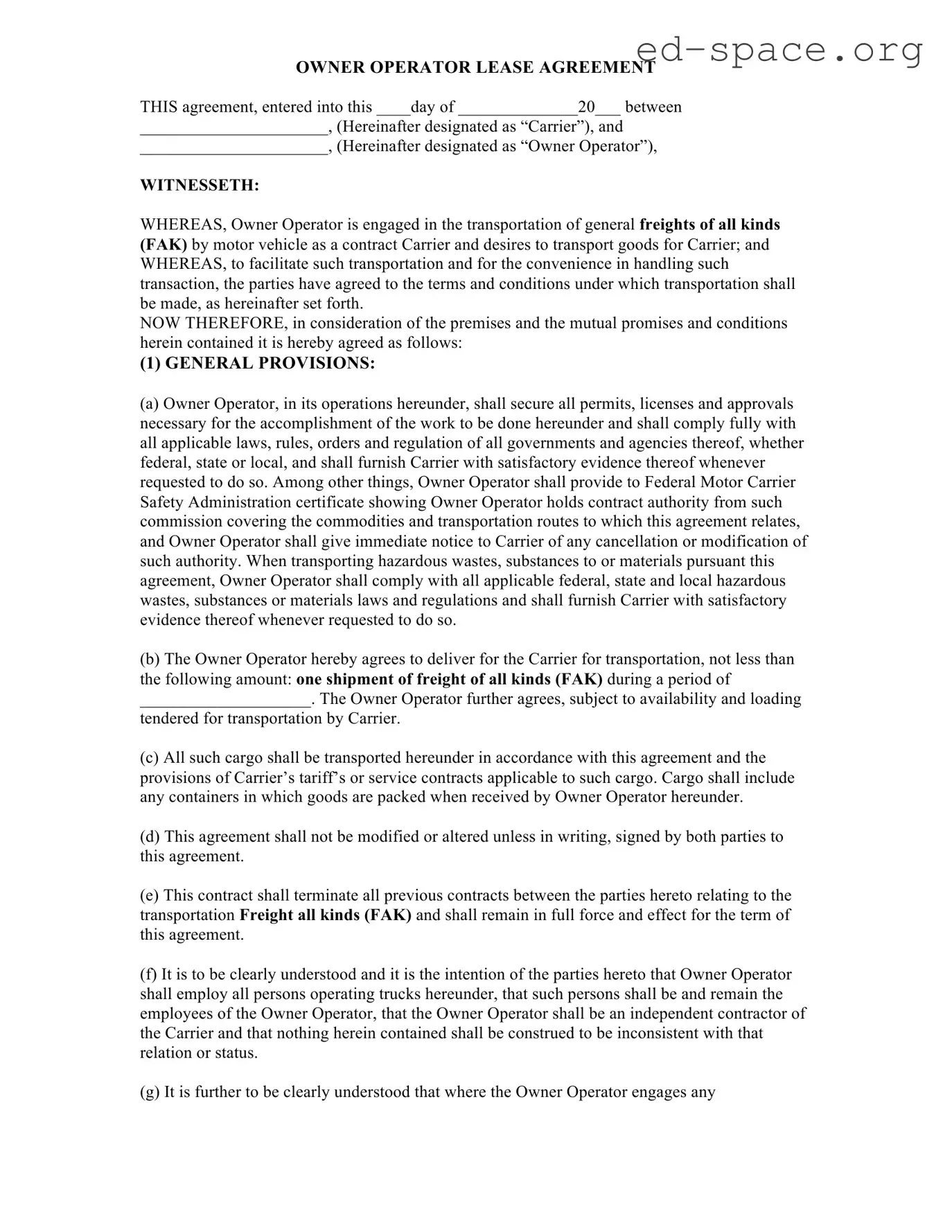subcontractor for any portion of the work hereunder, such engagement will not alter the
relationship of the Owner Operator to the Carrier as an independent contractor and shall not
establish any relationship or obligation between Carrier and any subcontractor. Owner Operator
will continue to be solely responsible for compliance with or performance for any subcontractors
actually doing such work and will otherwise defend, indemnify and save harmless the Carrier, its
agents and servants from any such claims, liabilities, penalties and fines (whether criminal or
civil), judgments outlays and expenses (including attorney’s fees).
(h) Owner Operator shall defend, indemnify and save harmless the Carrier, its agents and servants
from any and all liabilities, penalties and fines (whether criminal or civil), judgments, outlays and
expenses (including attorney’s fees) resulting from Owner Operator’s failure or the failure of
Owner Operator’s agents, employees, subcontractors or representatives to comply with any
applicable laws and regulations, whether federal, state or local, or property arising out of the
performance of this agreement caused by the acts, failure to act or negligence of Owner Operator,
subcontractors, its agent, employees, or representatives.
(i) Owner Operator will assume all liability for and will otherwise defend, indemnify and save
harmless the Carrier, its agents or servants from any and all liabilities, penalties and fines
(whether criminal or civil). Judgments, outlays and expenses (including attorney’s fees) resulting
from any release or discharge of hazardous wastes, substances or materials that occurs during
transportation and Owner Operator will assume all responsibility and liability for cleanup of any
release or discharge of hazardous wastes, substances or materials that occurs during
transportation and will otherwise defend indemnify and save harmless the Shipper, its agents and
servants from any and all liabilities, penalties and fines (whether criminal or civil), judgments,
outlays and expenses (including attorney fees) resulting from the cleanup of any such release or
discharge.
(j) Owner Operator will defend, indemnify and save harmless the Carrier, its agents and servants
from any and all liabilities, penalties and fines (whether criminal or civil in nature), judgments,
outlays and expenses (including attorney’s fees) resulting from the Owner Operator’s failure or
the failure of Carrier’s agents, employees, subcontractors or representatives to perform any of the
terms, conditions, promises or covenants contained in this contract.
(k) Carrier shall have full responsibility for all payments, benefits, and rights of whatsoever
nature to or on behalf of any of its employees and to ensure that its subcontractor shall have the
same responsibility.
(l) It is further agreed by the parties hereto that Owner Operator is not to display the name of
Carrier upon or about any of the Owner Operator’s vehicles, without Carrier’s written consent.
(m) Any limitation on or exemption from liability in any tariff, receipt, bill of lading, or other
document issued by or on behalf of Owner Operator shall have no legal effect and shall not
otherwise apply with respect to shipments tendered by or on behalf of Carrier unless specifically
agreed in writing by the Owner Operator. Any limitations on or exemptions from liability
contained in a Owner Operator’s tariff, receipt, bill of lading, or other document issued in
conjunction with a specific shipment moving under this Contract shall have no legal effect and
shall not otherwise be applicable to such shipments.




